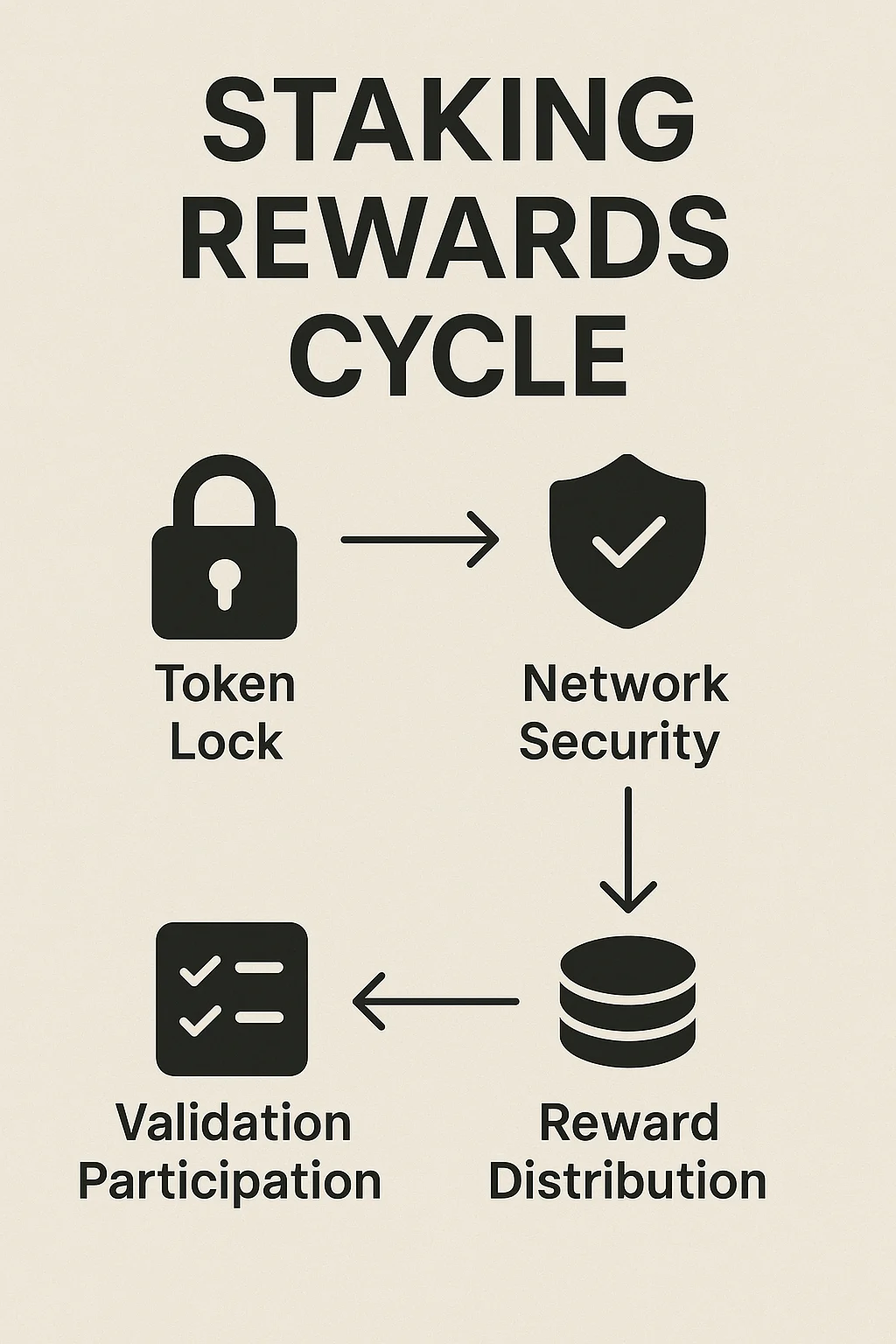Staking Rewards
Staking Rewards: Earning from Network Security
Staking rewards compensate users for locking up cryptocurrency to help secure proof-of-stake networks. It’s like earning interest for helping guard the bank vault.
Staking rewards are cryptocurrency payments earned by users who lock up tokens to participate in proof-of-stake network consensus and security. These rewards incentivize honest participation while providing passive income opportunities.
How Staking Rewards Work
Network participation involves locking tokens to help validate transactions, secure the network, and maintain consensus through economic incentives.
Reward calculation typically depends on factors like stake amount, network inflation rate, total staked supply, and validator performance.
Distribution mechanisms may provide rewards directly to stakers or require claiming through specific transactions or delegation to validator operators.

Real-World Examples
- Ethereum staking provides approximately 4-6% annual returns for validators and delegators
- Cardano (ADA) offers staking rewards through delegation pools with no lock-up periods
- Solana staking rewards vary based on network performance and validator selection
Why Beginners Should Care
Passive income opportunities for long-term holders who want to earn returns on cryptocurrency holdings without active trading.
Network contribution as staking helps secure blockchain networks while earning rewards for productive participation.
Risk considerations including slashing penalties, lock-up periods, and validator selection that affect potential returns and fund accessibility.
Related Terms: Proof of Stake, Validator, Delegation, Network Security
